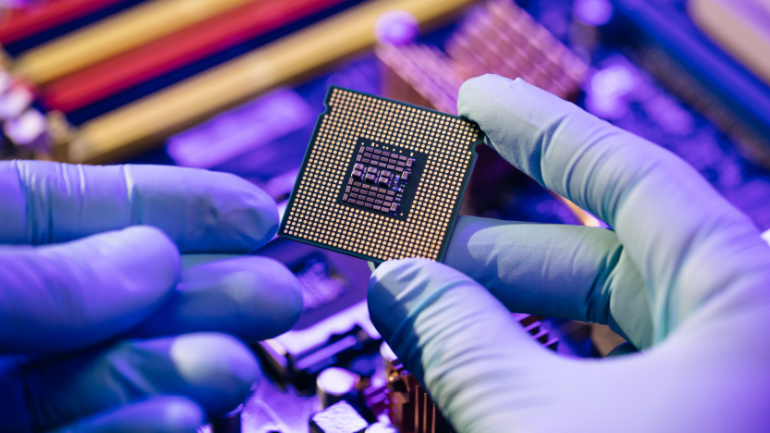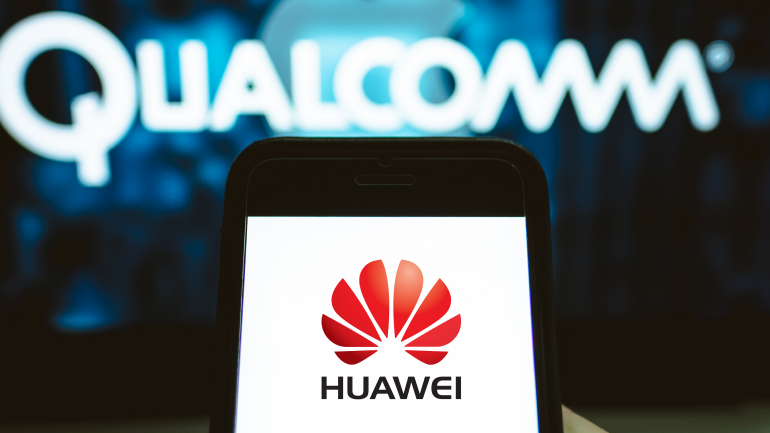Vodafone’s collaboration with Salience Labs and iPronics aims to advance open radio access networks (open RAN) by harnessing the potential of silicon photonic chips. This light-based technology could promise enhanced network programmability and ultra-low latency powered by their increased speed and reduced energy consumption — elevating critical 5G capabilities. With silicon photonics making waves in data centers, the industry, poised for rapid growth, radiates intrigue on the horizon. Yet, it also questions current cost dynamics, especially around open RAN technology.
Apple is venturing into the realm of artificial intelligence (AI) processing chips for data centers, as reported by the Wall Street Journal. This move positions Apple in direct competition with industry peers like Google and Amazon, which have already heavily invested in AI chip technology.
A research team led by Professor Wang Cheng from the Department of Electrical Engineering (EE) at City University of Hong Kong (CityUHK) has developed a world-leading microwave photonic chip that is capable of performing ultrafast analog electronic signal processing and computation using optics.
Exploring Apple’s groundbreaking leap in silicon innovation with their latest M3, M3 Pro, and M3 Max products, it’s evident that personal computer processing is being redefined. Promising substantially expedited rendering times and performance enhancements across the board, Apple offers these not as mere upgrades, but as game-changers in the hardware world. Furthermore, these innovations signal noteworthy shifts in the broader landscape of PC CPU chips, traditionally dominated by Intel and AMD, now facing exciting competition. Dive deeper to discover the impact of these changes in the world of technology.
Intel’s massive €30 billion European project advances with state-of-the-art factories in Magdeburg, Germany, boosting job creation and supply chain resilience amid global semiconductor demand. Will the ambitious initiative fulfill high-tech production aspirations?
The American mobile chip making giant, Qualcomm, is trying to persuade the US government to allow them to sell its chips to Huawei for their 5G smartphones. According to reports, Qualcomm selling its 5G chips to the Chinese multinational technology company might end up helping American business. The US trade ban on Huawei has severely affected the manufacturer’s inventories. When the US increased sanctions against Huawei in May, it was immediately clear that it would be a huge blow to the Chinese seller, as the company would no longer be able to use components from US suppliers. In fact, the impact of sanctions quickly proved to be as expected. Just last week, Huawei announced that its latest flagship smartphone, Huawei Mate 40, would be the last model to use high-end Kirin processors manufactured by its subsidiary HiSilicon. The US trade ban on Huawei will not prevent the…
Vodafone, Xiaomi, and Qualcomm Technologies Inc have achieved a pivotal breakthrough in 5G advancements. Successfully trialing an innovative 5G uplink technology, these giants have demonstrated unprecedented upload speeds, reshaping the digital landscape.
According to Bloomberg analyst Mark Gurman, Apple has some exciting developments in the pipeline, including the potential release of an independent display and new features for the future AirPods. Gurman suggests that the upcoming monitor could serve as a smart home display when not actively used.
Marvell Technology is experiencing substantial growth in its data center AI segment, despite an overall revenue dip for the second quarter of fiscal 2025. The company reported net revenue of $1.273 billion and a significant reduction in net loss compared to the previous year. Driven by strong AI demand, Marvell’s data center business saw record revenue, setting the stage for robust growth opportunities.
Germany is investing €5 billion in a new semiconductor manufacturing facility in Dresden through the European Semiconductor Manufacturing Company (ESMC) initiative. The facility will leverage advanced technologies like FinFET and aims to reduce Europe’s dependence on U.S. and Chinese semiconductor imports. This strategic move promises to enhance Germany’s role in the global semiconductor industry.











